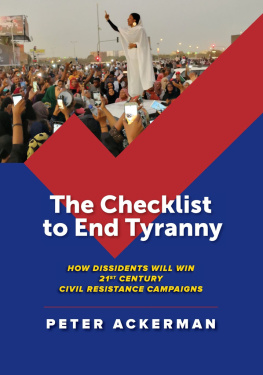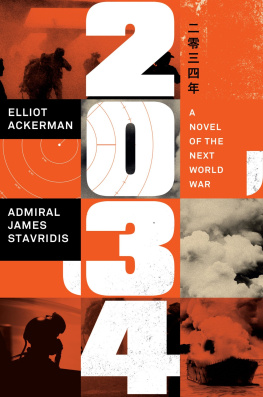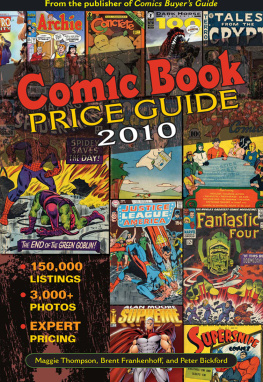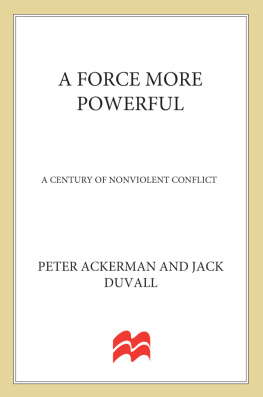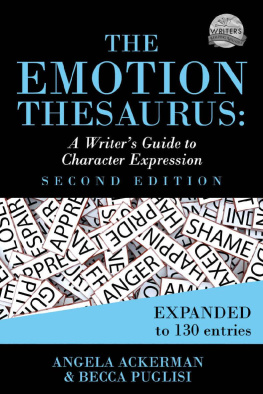Peter Ackerman - The Checklist to End Tyranny
Here you can read online Peter Ackerman - The Checklist to End Tyranny full text of the book (entire story) in english for free. Download pdf and epub, get meaning, cover and reviews about this ebook. year: 2021, publisher: International Center on Nonviolent Conflict, genre: Politics. Description of the work, (preface) as well as reviews are available. Best literature library LitArk.com created for fans of good reading and offers a wide selection of genres:
Romance novel
Science fiction
Adventure
Detective
Science
History
Home and family
Prose
Art
Politics
Computer
Non-fiction
Religion
Business
Children
Humor
Choose a favorite category and find really read worthwhile books. Enjoy immersion in the world of imagination, feel the emotions of the characters or learn something new for yourself, make an fascinating discovery.
- Book:The Checklist to End Tyranny
- Author:
- Publisher:International Center on Nonviolent Conflict
- Genre:
- Year:2021
- Rating:4 / 5
- Favourites:Add to favourites
- Your mark:
- 80
- 1
- 2
- 3
- 4
- 5
The Checklist to End Tyranny: summary, description and annotation
We offer to read an annotation, description, summary or preface (depends on what the author of the book "The Checklist to End Tyranny" wrote himself). If you haven't found the necessary information about the book — write in the comments, we will try to find it.
The Checklist to End Tyranny — read online for free the complete book (whole text) full work
Below is the text of the book, divided by pages. System saving the place of the last page read, allows you to conveniently read the book "The Checklist to End Tyranny" online for free, without having to search again every time where you left off. Put a bookmark, and you can go to the page where you finished reading at any time.
Font size:
Interval:
Bookmark:



The Checklist to End Tyranny: How Dissidents
Will Win 21st Century Civil Resistance Campaigns
by Peter Ackerman
First edition: September 2021
Published by ICNC Press
International Center on Nonviolent Conflict
600 New Hampshire Ave NW, Suite 710
Washington, D.C. 20037 USA
www.nonviolent-conflict.org
CONTACT:
2021 Peter Ackerman
All rights reserved.
ISBN: 978-1-943271-50-4
ISBN: 978-1-943271-66-5 (e-book)
The Checklist to End Tyranny
Workshop and Online
Course Evaluations
Photo: Early stages of the
Jasmine Revolution that unseated
President Ben Ali in Tunisia, 2010.

Acknowledgments
F OLLOWING GENE SHARPS passing in 2018, there is only one person who has been with me on this journey from the beginning. That is Joanne Leedom-Ackerman, my wife of 49 years. Through all this time she has been emphatic about why advancing understanding of nonviolent conflict is critical to preserving human rights and democratic governancevalues we have always shared.
In addition to Joannes vital encouragement, this book would not have been written without Hardy Merriman, the President and CEO of the International Center on Nonviolent Conflict. An earlier version of the Checklist can be found in a chapter I co-authored with Hardy for an edited volume published by the Atlantic Council, Is Authoritarianism Staging a Comeback? His thought partnership and contributions are reflected at various points in this book, and he has been diligent in bringing The Checklist to End Tyranny to publication by ICNC Press. Special thanks has to go to Maciej Bartkowski, Bruce Pearson, Alice Wren, and Lillian Hathaway for editing many drafts.
I am indebted to many scholars whose work was referenced in the book and who have offered critical advice. They include Maria Stephan, Erica Chenoweth, Stephen Zunes, Jonathan Pinckney, and Ivan Marovic.
Others who have reviewed the text include Aaron Lobel, Reuben Brigety, and Hans Binnendijk.
In the aggregate they have sharpened ideas and identified contradictions and important omissions. This volume has been significantly improved by their input.
At left: The No Campaign opposing Augusto Pinochet in Chile, 1988.
It is generally assumed
that tyrannies persist
because they possess
a monopoly on the use
of force. Yet oppressed
populations using
nonviolent tacticssuch
as strikes, boycotts, and
mass protestsare often
the most powerful drivers
of their own liberation.
Chapter One
INTRODUCTION:
The Evolving Role of Civil Resistance in the Battle Against Tyranny
I t is generally assumed that tyrannies persist because they possess a monopoly on the use of force. While violence against their citizens can be decisive for a time, there is a better explanation: Tyrannies persist as long as citizens fail to understand howwithout needing to resort to violencethey can undermine the tyrants base of support and force him from power. Oppressed populations using nonviolent tacticssuch as strikes, boycotts, mass protests, and other forms of disrupting societal orderare often the most powerful drivers of their own liberation.
Increasingly this good news has been embraced by dissidents and others concerned with the advancement of human rights and democratic governance free from corruption. Yet the potential of civil resistance remains widely underrecognized because its premises sharply challenge conventional assumptions about the nature of power. Policymakers, scholars, journalists, and other interested observers consistently overestimate the extent to which tyrants can rely on violence to manipulate a population they assume they control. At the same time, they underestimate the capacity of ordinary people to undermine tyranny and achieve rights through the strategic use of nonviolent tactics.
These insights came to me a half a century ago. Since then, I have endeavored to transmit this knowledge to dissidents and pro-democracy activists so they can realize their unlimited opportunities to live in freer societies.
In the early to mid-1970s I was a PhD candidate in Strategic Studies at the Fletcher School of Law and Diplomacy at Tufts University. The failure of US military forces in Vietnam prompted my interest in asymmetric warfare. This involved studying how adversaries with significantly inferior military capabilities can wage conflict by utilizing highly differentiated strategies and tactics involving economic, cultural, and psychological factors. One of my courses on strategic theory was taught by Harvard Professor Thomas Schelling, who went on to win the 2005 Nobel Prize in Economic Sciences. Schelling was considered the preeminent scholar on how to communicate intent between the United States and the Soviet Union in order to reduce the threat of accidental nuclear war.
I approached Professor Schelling after a lecture to discuss how protagonists with inferior military capabilities could prevail in conflicts against adversaries with superior military capabilities. He responded with a challenge: If you are interested in studying why protagonists with inferior military resources could prevail, then why not instead explore how protagonists with no military resources at all could succeed?
Professor Schelling introduced me to Gene Sharp, who was about to publish his iconic three-volume study, The Politics of Nonviolent Action. At the center of Sharps thinking was a thesis about power which harkened back to the centuries-old work of tienne de La Botie in his Discourse on Voluntary Servitude, published in 1576. De La Botie wrote:
Resolve to serve no more, and you are at once freed. I do not ask that you place hands upon the tyrant to topple him over, but simply that you support him no longer; then you will behold him, like a great Colossus whose pedestal has been pulled away, fall of his own weight and break in pieces.
Here is Sharps contemporary version of this insight:
In political terms, nonviolent action is based on a very simple postulate: people do not always do what they are told to do, and sometimes they act in ways that have been forbidden to them. Subjects may disobey laws they reject. Workers may halt work, which may paralyze the economy. The bureaucracy may refuse to carry out instructions. Soldiers and police may become lax in inflicting repression; they may even mutiny. When all such events happen simultaneously, the persons who have been rulers become just other persons. This dissolution of power can happen in a wide variety of social and political conflicts.
When people refuse cooperation, withhold their help, and persist in their disobedience and defiance, they are denying their opponents the basic human assistance and cooperation which any government or hierarchical system requires. If people do this in sufficient numbers for long enough, that government or hierarchical system will no longer have power. This is the basic political assumption of nonviolent action.
Font size:
Interval:
Bookmark:
Similar books «The Checklist to End Tyranny»
Look at similar books to The Checklist to End Tyranny. We have selected literature similar in name and meaning in the hope of providing readers with more options to find new, interesting, not yet read works.
Discussion, reviews of the book The Checklist to End Tyranny and just readers' own opinions. Leave your comments, write what you think about the work, its meaning or the main characters. Specify what exactly you liked and what you didn't like, and why you think so.

